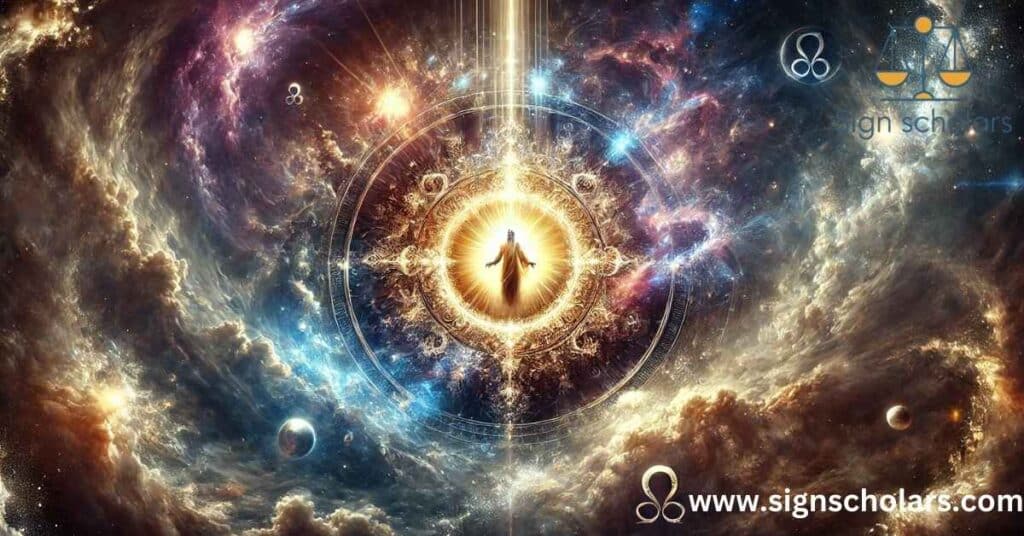According to the Bible, God is eternal and beyond human comprehension, which means He has no beginning or end. Scriptures such as Psalm 90:2 and Revelation 22:13 affirm that God existed before creation, making Him outside the constraints of time.
He is referred to as the “Alpha and the Omega,” indicating that He encompasses both the start and the end of all things. Therefore, when considering “how old is God,” the Bible suggests that He is ageless, existing outside of time and space.
His existence cannot be measured in human terms, as He transcends the limitations of time, being eternal and unchanging.
Understanding Time in the Bible
In the Bible, the concept of time is central to the story of creation. It is a framework by which humans experience life, but God’s relationship with time is fundamentally different from ours.
While we are bound by the passing of moments, days, and years, God is depicted as outside of and above these limitations.
Genesis 1:1 opens with the profound statement, “In the beginning, God created the heavens and the earth.” This passage reveals that God existed before the beginning of what we know as time.
He initiated time by creating the universe, placing celestial bodies such as the sun, moon, and stars to measure days, seasons, and years (Genesis 1:14).
In essence, God is portrayed as both the Creator of time and its sovereign Master. His eternal existence precedes all things, both seen and unseen.
God’s Creation of Time
Time—measured through cycles of day and night—is a unique aspect of creation. Before the creation described in Genesis, there was no framework for measuring events as humans do.
Psalm 90:2 provides a poetic depiction of God’s relationship to time, declaring, “Before the mountains were brought forth, or ever you had formed the earth and the world, from everlasting to everlasting, you are God.”
This reinforces the idea that God is not only older than creation but exists in a timeless state.
In human terms, time marks change and progression. God, however, remains unchanging. As described in Hebrews 13:8, “Jesus Christ is the same yesterday and today and forever.”
This timeless nature challenges human perceptions of age since we rely on beginnings and endings to define the passage of time. In God’s reality, these concepts do not apply.
Biblical Timeline and God’s Existence
In exploring God’s eternal nature, the biblical timeline provides an anchor for understanding His works. The Old Testament records significant events such as the Exodus and the reign of King David, while the New Testament focuses on the life and resurrection of Jesus Christ.
Although the Bible outlines a linear progression of events, God is shown to operate both within and beyond these constraints.
Consider this table summarizing key biblical events:
| Biblical Event | God’s Timeless Connection |
| Creation (Genesis 1:1) | God begins time and creates all things. |
| Covenant with Abraham | Demonstrates His enduring promises. |
| The Exodus (Exodus 3:14) | Reveals His eternal name: “I AM.” |
| Resurrection of Christ | Fulfillment of eternal redemption. |
While humanity measures history in centuries, God sees the entirety of creation simultaneously. Isaiah 46:9-10 highlights this omniscience: “I am God, and there is no other; declaring the end from the beginning, and from ancient times things not yet done.” His eternal perspective encompasses both past and future.
God’s Self-Revelation About His Age
God’s eternal nature is a recurring theme in Scripture. His titles and names provide valuable insights into His timeless essence, each revealing an aspect of His relationship with time and existence.
The Meaning of “I AM”
One of the most profound self-revelations of God occurs in Exodus 3:14, where He tells Moses, “I AM WHO I AM.” This name, translated from the Hebrew YHWH (יהוה), signifies God’s eternal presence.
It communicates that He simply is, without beginning or end. Unlike humans, whose existence depends on external factors, God’s being is entirely self-sufficient.
Jesus later uses the same expression in John 8:58, saying, “Before Abraham was born, I AM.” This declaration reaffirms His divinity and timeless existence.
The phrase conveys not only God’s permanence but also His immediate presence in every moment.
Other Biblical Names Indicating God’s Ageless Nature
Many biblical names and titles illustrate God’s timelessness:
- El Olam (עוֹלָם אֵל): Meaning “Everlasting God,” this title appears in Genesis 21:33 to emphasize God’s eternal duration.
- Alpha and Omega: Found in Revelation 22:13, this title underscores God’s all-encompassing nature as both the first and the last.
- Ancient of Days: Mentioned in Daniel 7:9, this name portrays God as an eternal ruler with wisdom and authority beyond measure.
These names serve as reminders of God’s unchanging character and His existence beyond the confines of human perception.
Common Questions About God’s Age
Does God Have a Beginning?
One of the most intriguing aspects of God is that He has no beginning. In Proverbs 8:22-23, we read about wisdom being created as part of God’s plan, but God Himself existed before all else. He is uncreated, eternal, and self-existent.
This is difficult for humans to comprehend because everything in our reality—from stars to civilizations—has a defined origin.
The Bible makes it clear that God’s existence predates time and space. John 17:5 further reveals this truth: Jesus prays to the Father, referencing the glory they shared “before the world existed.”
This glimpse into pre-creation eternity highlights that God’s nature defies the constraints of time.
Can We Calculate God’s Age?
Given that God exists outside time, calculating His age is impossible. The human mind associates age with birth and the passage of years, but God’s existence is not measured in this way.
2 Peter 3:8 provides a striking example: “With the Lord, one day is as a thousand years, and a thousand years as one day.” This verse illustrates the vast difference between divine and human perceptions of time.
When we speak of God’s age, it’s not about counting years but acknowledging His eternal nature. As Isaiah 43:13 affirms, “From eternity to eternity I am He.” God’s existence is perpetual, infinite, and incomparable.
Biblical Summary of God’s Age
The Bible concludes that God’s age cannot be quantified. He is described as timeless, eternal, and unchanging. Psalm 93:2 beautifully summarizes this truth: “Your throne is established from of old; you are from everlasting.”
Understanding God’s timelessness gives believers comfort in His unchanging presence and authority. As the Everlasting God, His promises endure, His wisdom remains unfathomable, and His love transcends all understanding.
These characteristics inspire awe and provide hope, as believers trust in a God who exists beyond the limits of time and human frailty.
| Attribute of God | Scripture Reference | Meaning |
| Eternal Nature | Psalm 90:2, Isaiah 43:13 | Exists without beginning or end. |
| Creator of Time | Genesis 1:1, Genesis 1:14 | Made time and governs over it. |
| Immutable Character | Hebrews 13:8, James 1:17 | Never changes over eternity. |
| Sovereign Authority | Revelation 22:13, Isaiah 46:10 | Controls the past, present, and future. |
God’s eternal existence represents one of the most profound mysteries of faith. While human understanding is limited, Scripture provides us glimpses of His timeless essence.
Through His names, His works, and His revelations, God shows Himself as the Ancient of Days, the Alpha and Omega, and the Creator of all things.
His existence outside time reassures believers that He is the same yesterday, today, and forever, guiding creation with wisdom and love through every moment of eternity.
Conclusion
According to the Bible, God is eternal and has no beginning or end. Scriptures like Psalm 90:2 affirm that God existed before the creation of the world, making Him outside the confines of time.
He is described as the “Alpha and the Omega” (Revelation 22:13), meaning He is both the beginning and the end. In essence, God’s age is not measurable in human terms, as He is timeless and exists beyond the scope of time as we understand it.




![Mike Bickle Net Worth 2025 [UPDATE]: Personal Life and Controversies](https://signscholars.com/wp-content/uploads/2025/06/mike-bickle-net-worth-2025-personal-life-and-controversies-150x150.jpg)
![Roll Tide Willie Net Worth [UPDATE]: How Rich Is He in 2025?](https://signscholars.com/wp-content/uploads/2025/06/roll-tide-willie-net-worth-how-rich-is-he-in-2025-150x150.jpg)

